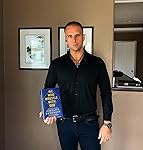

Buy Now, Pay Later
- – 4-month term
- – No impact on credit
- – Instant approval decision
- – Secure and straightforward checkout
Ready to go? Add this product to your cart and select a plan during checkout.
Payment plans are offered through our trusted finance partners Klarna, Affirm, Afterpay, Apple Pay, and PayTomorrow. No-credit-needed leasing options through Acima may also be available at checkout.
Learn more about financing & leasing here.
This item is eligible for return within 30 days of receipt
To qualify for a full refund, items must be returned in their original, unused condition. If an item is returned in a used, damaged, or materially different state, you may be granted a partial refund.
To initiate a return, please visit our Returns Center.
View our full returns policy here.
Recently Viewed
Description
A revolutionary new offering from Dr. Jordan B. Peterson, renowned psychologist and author of the global bestseller 12 Rules for Life.In We Who Wrestle with God, Dr. Peterson guides us through the ancient, foundational stories of the Western world. In riveting detail, he analyzes the Biblical accounts of rebellion, sacrifice, suffering, and triumph that stabilize, inspire, and unite us culturally and psychologically. Adam and Eve and the eternal fall of mankind; the resentful and ultimately murderous war of Cain and Abel; the cataclysmic flood of Noah; the spectacular collapse of the Tower of Babel; Abraham’s terrible adventure; and the epic of Moses and the Israelites. What could such stories possibly mean? What force wrote and assembled them over the long centuries? How did they bring our spirits and the world together, and point us in the same direction?It is time for us to understand such things, scientifically and spiritually; to become conscious of the structure of our souls and our societies; and to see ourselves and others as if for the first time.Join Elijah as he discovers the Voice of God in the dictates of his own conscience and Jonah confronting hell itself in the belly of the whale because he failed to listen and act. Set yourself straight in intent, aim, and purpose as you begin to more deeply understand the structure of your society and your soul. Journey with Dr. Peterson through the greatest stories ever told.Dare to wrestle with God. Read more
Frequently asked questions
To initiate a return, please visit our Returns Center.
View our full returns policy here.
- Klarna Financing
- Affirm Pay in 4
- Affirm Financing
- Afterpay Financing
- PayTomorrow Financing
- Financing through Apple Pay
Learn more about financing & leasing here.
Top Amazon Reviews






